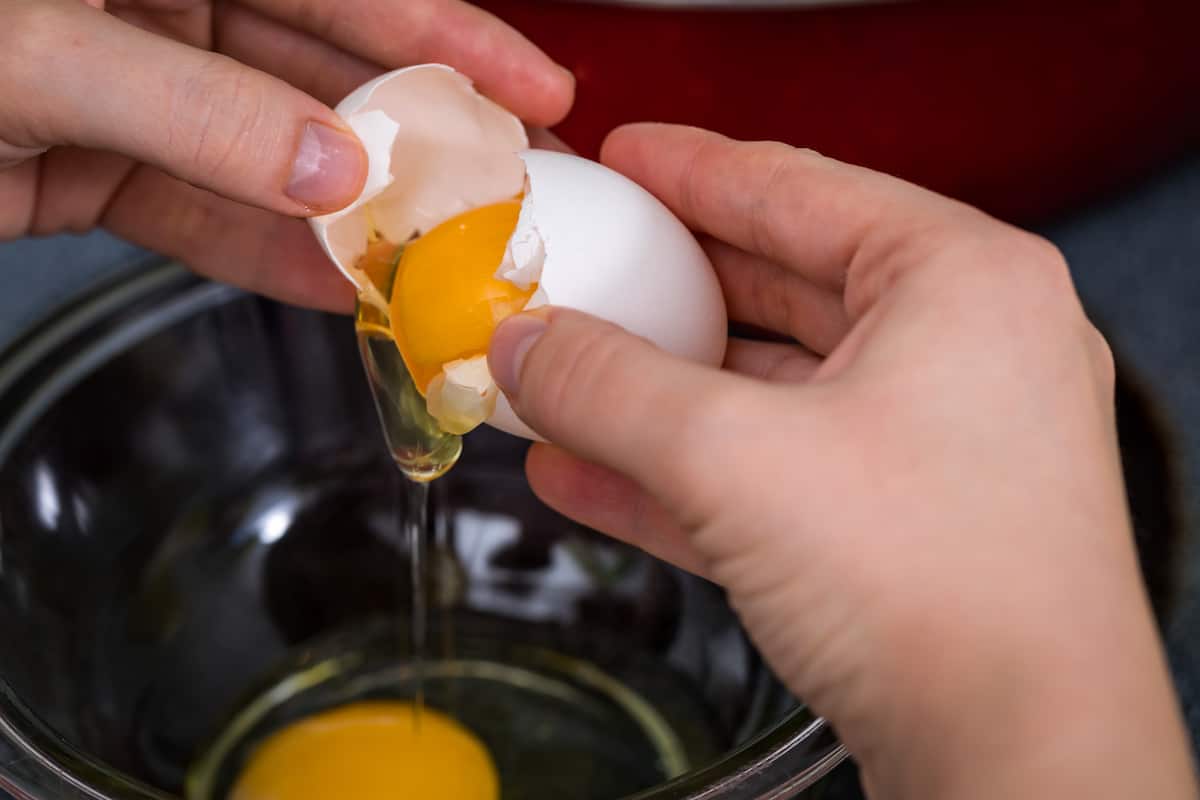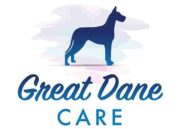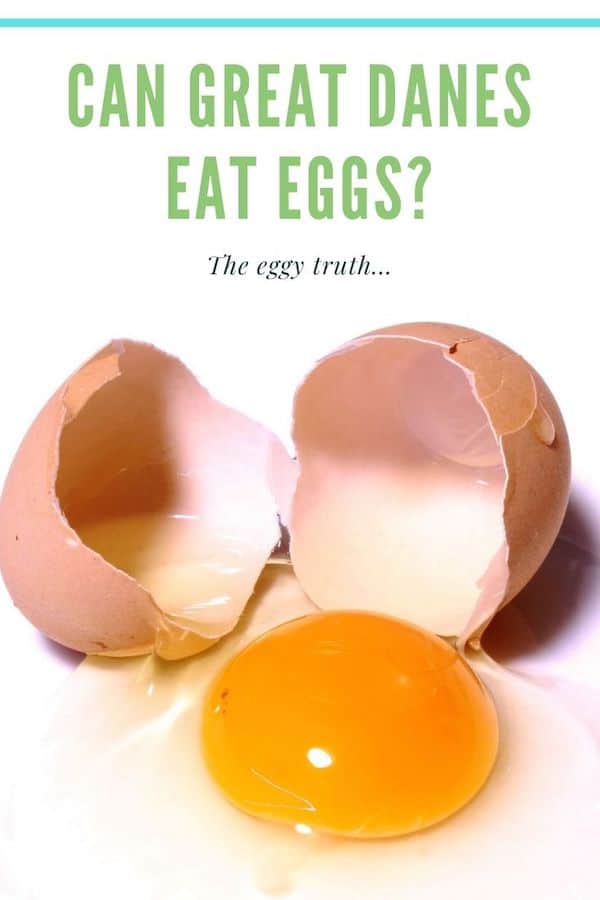
When researching feeding raw foods for Great Danes, or any canine, it is hard to discover accurate information. There are hundreds of websites, most disagreeing with each other. However, one truth is that dogs, as carnivores, do like to eat high-protein foods, such as meat. But what about other protein sources, such as eggs?
Can Great Danes eat eggs? Yes, Great Danes can safely eat cooked eggs. Eggs are a nutritious and cost-effective way of providing variety to your dog’s diet. However, while they are healthy, they should not act as the primary source of protein for your Great Dane.
Most responsible and informed dog owners know that feeding too much “people food” can make a dog ill or overweight. However, eggs are one of several items that can be added to a dog’s diet to increase nutrition and variety.
They can be part of a 100% raw diet or just used to supplement dry dog food. As with other people’s food, they can be fed to Great Danes alone or along with other approved people’s food.
Benefits of Eggs
Generally speaking, eggs are a healthy addition to a dog’s diet. All parts of the egg provide some beneficial nutrition, including being high in protein, fatty acids, and amino acids.
The shells are a good source of calcium. While they can make excellent supplemental food, they should not be the dog’s primary (or sole) source of protein.
Because the proteins in eggs are easily digestible, cooked eggs are a great way to increase a dog’s protein without causing digestive stress. This can be particularly useful when they are sick or recovering from illness, and need a protein that’s “easy on the stomach”.
Other beneficial nutrients are riboflavin, folate, iron, selenium, and various vitamins.
Cooked eggs can be used as a healthy snack or training treats. However, be wary of cooking them in oil or butter and seasoning them as this could upset your Dane’s sensitive stomach. Lucky for them, eggs are quite tasty just being served plain 😉
Concern about Eggs
Eggs need to be used only in moderation. Cooked or uncooked, they are high in cholesterol and high in fat. The fat portion is particularly important to pay attention to as it could quickly result in your dog eating too many calories and gaining unnecessary weight.
As a general rule of thumb, aim to feed your Great Dane no more than one whole egg per day. Eggs can make great healthy treats or training treats, but should not be a major part of the dog’s diet to avoid the potential harmful effects.
Raw eggs should only be fed with some consideration of the potential risks. Some veterinarians warn of health concerns of feeding dogs raw food, such as the potential for salmonella poisoning and biotin deficiency. Raw eggs, like raw chicken, can carry salmonella.
While dogs are certainly better equipped than humans to deal with bacteria of this type, it’s still a risk. Particularly for older dogs or those with compromised immune systems.
Eggs also contain avidin, which can inhibit biotin, or Vitamin K, which is needed for healthy cell growth and metabolism. Long term exposure can lead to biotin deficiency. However, the avidin is found just in the whites. The yolks are high in biotin are thought to balance the risk of biotin deficiency. Cooking the egg decreases the avidin and reduces the risk.
Important Tip: Some veterinarians believe that cooking eggs destroy their nutritional value. Ultimately, it is a decision between you as the dog’s owner and your respective veterinarian to make the call here.
If you do decide to use raw eggs, feel free to break them over your pet’s meal and mix them in.
How To Cook Eggs for Dogs
Because the evidence seems to support the fact that cooked eggs are safer, that then begs a new question – does it matter how I cook eggs for my Great Dane? In short, not really!
Scramble, hard boil, soft boil, poached, etc… there are countless different ways to cook up some eggs for ole Scooby. Go with the approach that works best for you and that you feel comfortable using.
The only caveat to the cooking process is that you avoid the addition of fats such as butter or oil as they can upset your dog’s stomach. The same applies to extra seasonings such as salt and pepper as well.
If you plan to keep eggs as a routine part of your dog’s diet, it may make sense to select a method that allows for bulk preparation and storage e.g. hard-boiling.
Because eggs are such a cost-effective form of protein, you can even choose to purchase bulk packs of hard-boiled eggs from the grocery store to save yourself time.
What About the Shells?!
While they thought of crunching down on an eggshell may not sound appetizing to you, your dog’s strong jaws are more than equipped to handle them! While shells carry similar risks for salmonella as the yoke, they can act as a good source of protein and calcium.
Funny enough, that extra calcium can help them to further build strong teeth and bones instead of damaging them.
When it comes to serving the eggshell, there are really two schools of thought.
- Serve the eggshells and yolk raw as part of your dog’s meal
- Cook the yolk and sterilize the shell before feeding
Number one is self-explanatory, so I’ll add some color to number two. Since we’ve already reviewed the variety of acceptable ways to cook the egg, the only real question remains in how to then sterilize the shell.
The simplest approach to this is to place the eggshells in a boiling pot of water for several minutes to kill any bacteria. Afterward, lay the shells on a paper towel to thoroughly dry out.
Finally, take your dried shells and crush them up for more compact storage and place them in an airtight container. The sterilized shells are good for about a week and can be sprinkled on your dog’s meal as needed.
Can Great Dane Puppies Eat Eggs?
Similar to humans, eggs can cause allergic reactions in certain cases. While they are generally thought to be safe, you should try to avoid them at very young ages.
For example – avoid giving eggs (raw or cooked) to a puppy who has not yet been fully weaned off of its mother’s milk.
However, once they’re a couple of months old, you can start sharing smaller bits of eggs with them to see how they do. While the likelihood of a negative reaction is low at this point, you also want to avoid giving them too much egg knowing just how calorically dense they are.
Weight management is critically important for Great Dane puppies to ensure proper growth and development, so keep an eye on just how many of these tasty high-calorie snacks that you share with them.
Will Eggs Make My Great Dane’s Coat Shiny
The beautiful sheen of a Great Dane coat is not only something to desire for its attractive look but also as an indicator for the dog’s good health!
While shampoos and conditioners certainly play some role in their coat’s appearance, the dog’s general health and nutrition play a much larger factor.
In particular, a balanced diet and the presence of essential fatty acids present in their diet will be key factors in a good looking coat.
While a “low-fat” diet may sound good for your dog, it can actually lead to deficiencies in omega fatty acids that lead to a dry dandruffy coat on your Dane.
The good news is that eating eggs can help to boost these critical fatty acids to not only provide great overall nutrition, but also improve the look of their coat. Some owners may also choose to add in an additional oil supplement (link to Amazon) to improve their dog’s coat.
Final Thoughts on Eggs
While eggs can certainly play a beneficial role in your Great Dane’s diet, they should be by no means a sole source of nutrition. Eggs do provide many valuable nutrients, but they do not provide everything required for a balanced diet.
Unfortunately, nutritional imbalances are one of the most preventable yet common issues affecting the development of Great Danes. For more information about how to find the right approach to feeding your dog a balanced meal, I would recommend taking a look at our Great Dane food guide.
In addition to peanut butter, many Great Dane owners wonder what other things around the home are safe for their dog to eat. Lucky for you, I’ve got articles covering these!


Enjoyed reading “Can Great Danes Eat Eggs?”.
Oobie Juan Kadoobie is our 145 pound, 18 month old, intact Great Dane pup.
He’s sleek, tall and about everything you’d expect from a healthy boy.
Even though Oobie is number 7 in a long line of Great Danes since our first almost 60 years ago, we continue to learn from you. Keep up the good work.
It’s true; “There is nothing like a Dane!”